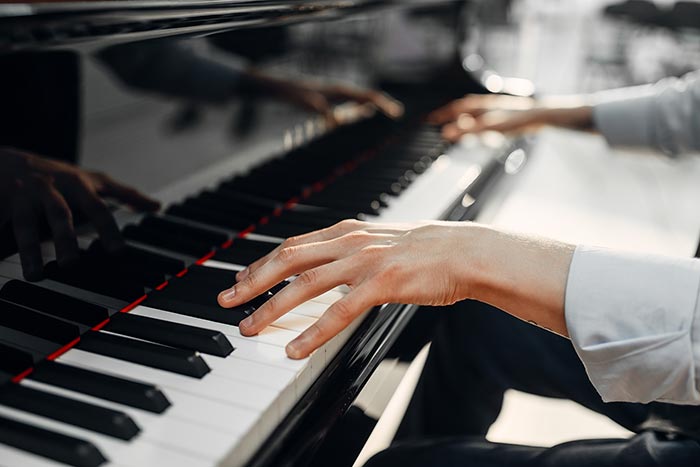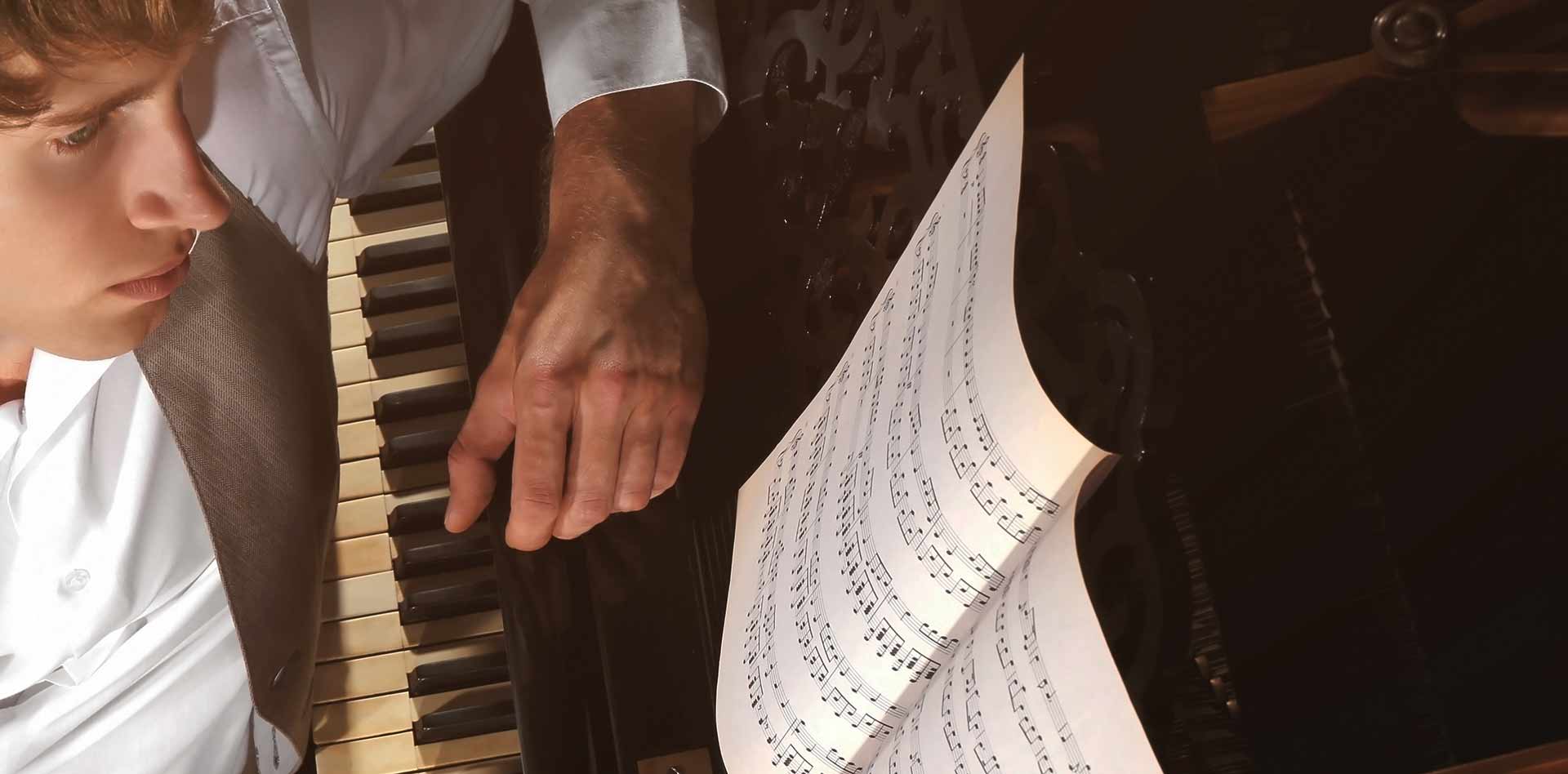Learning how to read the notes used in music notation is similar to learning a language. Some people say that they are not interested in learning how to read as they prefer to play by ear. (Some folks even go as far as thinking that it will be detrimental to their ears and improvisational skills if they learned how to read – nonsense!)
Not learning how to read the score properly, is one of the biggest mistakes that you can make if you are starting to learn the piano.
Piano compositions are often only available in written notation. Therefore reading music is one of the foundations of learning the piano and it is pure lunacy to go without it. Even jazz musicians who spend a lot of time improvising, are still able to read any score in any key at all times! (At least the good ones!)
Obtaining a perfect knowledge of the vocabulary used in music is essential if you do not always want to struggle with your piano playing. (Reading music is an ESSENTIAL AND SERIOUS TOOL that will help you progress to the next level of your piano playing)
Even if you desire to play popular piano pieces and your primary focus is playing chords and improvising melodies, I would still recommend learning how to read. It will only enhance your musical abilities and never subtract from it. (The effort invested will always return a very positive musical skill – it’s worth it! – and YOU ARE WORTH IT!)
Not knowing what the notes are or having a vague idea about it will seriously hamper your music education and it will be very difficult to simply select your favourite score and sight-read it there and then for your pleasure.
Struggling to read the notes will basically bar you from the privilege of learning more interesting tunes and will keep you imprisoned at a beginner-pianist level. (It is unbelievably frustrating not to be able to read properly and it becomes a serious hindrance spoiling your talent!)
Stage 1
! Do not try to learn all the notes at once or play pieces where you can find notes that you do not really know. (Keep within your circle of competence to start with)
Focus on only a few notes and learn how to read them away from the piano. Write music lines for yourselves, mix up all the notes and repeat this exercise on a daily basis until you feel at ease with the notes in question. Also, DO NOT try to calculate the intervals on the score but learn all the notes for themselves.
Example:

The notes in the example are written in the Treble Clef (G Clef) and will usually be played by your right hand. Please note that the Treble Clef is ALSO called the G Clef as the drawing starts on the G line (2nd line)
C, D, E, F, G – with the name under it.
Note that the C is written below the bar line. The D is written below the first line, the E in written on the first line, the F in between the first and the second line and the G on the second line.
Examples of lines to be written and read.
Step 1: Read C and D Only
- Do not play the notes on the piano
- Just SAY the names of the notes

Step 2: Add E (to C & D)
- Do not play the notes on the piano
- Just SAY the names of the notes

Step 3: Add F (to C,D & E)
- Do not play the notes on the piano
- Just SAY the names of the notes

Step 4: Add G (to C,D, E, F & G)
- Do not play the notes on the piano
- Just SAY the names of the notes

Keep reading these notes faster and faster until you know them extremely well. It’s important to know them WITHOUT calculating any sort of distance between the individual notes. The idea is to imprint the notes on your mind much like the letters ‘A’,’Z’,’X’ are imprinted in your mind!
At the same time make absolutely certain that you learn and study composition that ONLY contain these 5 notes. (Obviously, this article is aimed at absolute beginners and if you are able to read more notes, copy the examples above and make sure you READ the notes and do NOT calculate the distances between what you know and do not know!!!)





